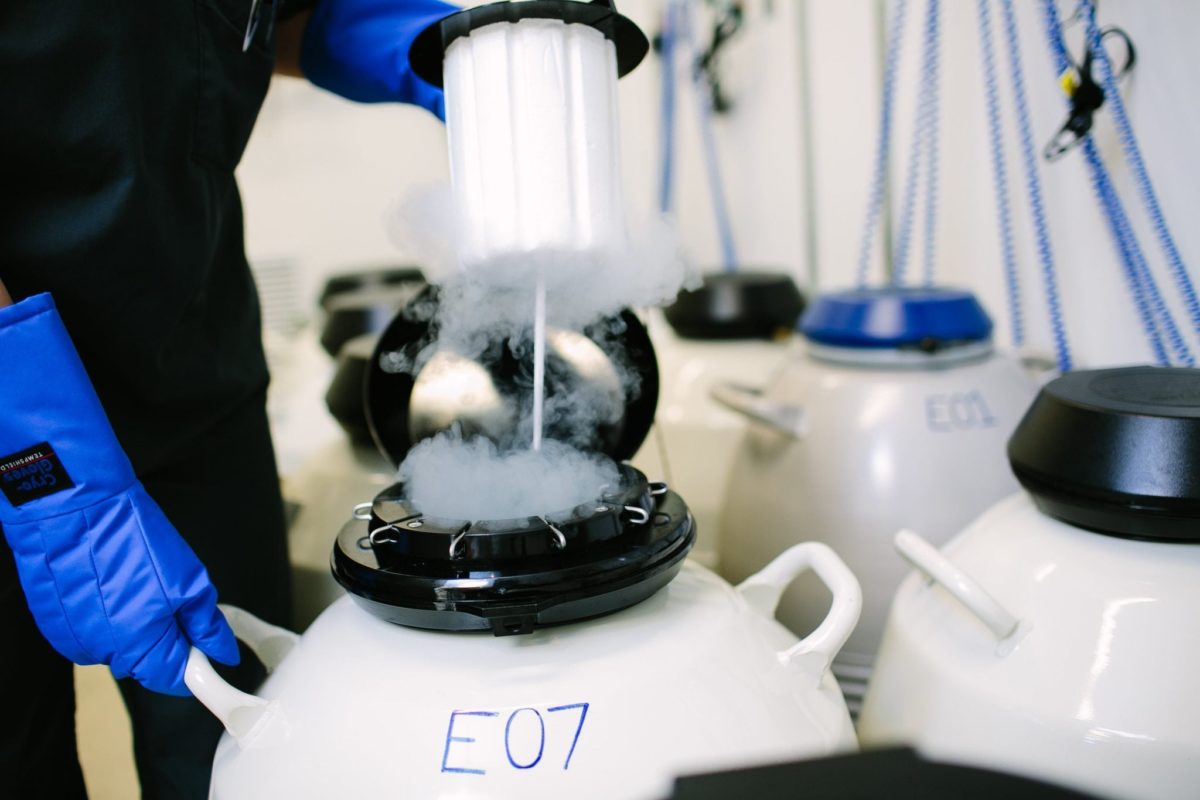Essential Lifestyle Adjustments for Egg Freezing or oocyte cryopreservation, has become an increasingly popular option for women looking to preserve their fertility for various personal and professional reasons. As the landscape of family planning evolves, many women are choosing to freeze their eggs to maintain control over their reproductive choices. However, successful egg freezing isn’t just about the medical procedure itself; it also requires thoughtful lifestyle adjustments. In this article, we’ll explore the essential lifestyle changes that can optimize your chances of successful egg freezing.
Understanding Egg Freezing
Egg freezing is a method that allows women to preserve their eggs for future use. The process involves stimulating the ovaries to produce multiple eggs, retrieving them, and then freezing them for later fertilization. As straightforward as it sounds, the journey requires careful preparation, including physical, emotional, and lifestyle considerations.
Why Consider Egg Freezing?
Women choose to freeze their eggs for a variety of reasons:
- Career Aspirations: Many women prioritize their education and career in their 20s and 30s, often delaying family planning. This trend reflects broader societal shifts where women are achieving higher levels of education and professional success.
- Relationship Factors: Not everyone finds the right partner at the right time, leading some to opt for egg freezing until they are ready to start a family. This can be particularly important in today’s dating landscape, where many people prefer to focus on personal growth before settling down.
- Health Concerns: Certain medical conditions or treatments (like chemotherapy) can affect fertility, prompting women to take proactive measures. Women diagnosed with conditions such as endometriosis or polycystic ovary syndrome (PCOS) may also consider freezing their eggs as a safeguard.
- Age: Fertility declines with age, making egg freezing a viable option for those looking to extend their reproductive years. Many women are aware that their peak fertility is in their 20s and early 30s, leading them to freeze eggs when they are younger.
The Science Behind Egg Freezing
Understanding the medical side of egg freezing can demystify the process and empower you to make informed decisions.
The Process of Egg Freezing
- Ovarian Stimulation: This initial phase involves hormonal medications to stimulate the ovaries to produce multiple eggs rather than the single egg that typically matures each month. This is usually done through injections of follicle-stimulating hormone (FSH).
- Monitoring: During this phase, regular blood tests and ultrasounds are performed to monitor hormone levels and track the development of follicles (the sacs that contain the eggs). This monitoring typically occurs every few days to ensure the response to the medication is adequate.
- Egg Retrieval: Once the eggs are ready, a minor surgical procedure is performed under sedation to retrieve them from the ovaries. This is typically done through transvaginal ultrasound-guided aspiration.
- Freezing: The retrieved eggs are then frozen using a process called vitrification, which prevents ice crystal formation and preserves the eggs’ integrity. Vitrification is a rapid freezing method that has significantly improved success rates.
Success Rates and Factors Influencing Outcomes
The success rates of egg freezing depend on various factors, including:
- Age at the Time of Egg Retrieval: Women who freeze their eggs in their 20s or early 30s generally have higher success rates compared to those who do so later.
- Quality of the Eggs: The quality of the eggs is a crucial factor that can be influenced by lifestyle choices, such as diet and exercise.
- Fertility Clinic Protocols: Different clinics may have varying protocols for ovarian stimulation and egg retrieval, which can affect outcomes.
Studies suggest that the chances of a successful pregnancy using frozen eggs can range from 20% to 60%, depending largely on the age of the woman at the time of freezing.
The Impact of Lifestyle on Egg Quality
Before diving into the necessary lifestyle adjustments, it’s important to understand how lifestyle choices can impact egg quality and overall reproductive health.
The Role of Nutrition
Nutrition plays a pivotal role in reproductive health. A balanced diet rich in essential nutrients can enhance ovarian function and egg quality. Consider the following dietary adjustments:
Increase Antioxidants
Foods high in antioxidants—like berries, leafy greens, and nuts—help combat oxidative stress, which can damage eggs. Oxidative stress is linked to aging and reduced fertility, making antioxidants crucial for women considering egg freezing.
- Berries: Blueberries, strawberries, and raspberries are packed with antioxidants and can be easily incorporated into smoothies or salads.
- Leafy Greens: Spinach, kale, and other greens provide essential vitamins and minerals that support overall health.
- Nuts and Seeds: Walnuts and flaxseeds are great sources of healthy fats and antioxidants.
Healthy Fats
Incorporate sources of omega-3 fatty acids, such as fish, walnuts, and flaxseeds. These fats support hormone production and overall reproductive health. Omega-3s have been shown to have anti-inflammatory properties, which may positively affect reproductive health.
- Fatty Fish: Salmon, sardines, and mackerel are excellent sources of omega-3s. Aim to include these in your diet a few times a week.
- Plant-Based Sources: If you prefer plant-based options, chia seeds and hemp seeds are good alternatives.
Limit Processed Foods
Highly processed foods often contain unhealthy fats and sugars, which can negatively affect fertility. Opt for whole foods whenever possible. Processed foods can contribute to weight gain and insulin resistance, both of which may impact reproductive health.
- Whole Foods: Focus on fruits, vegetables, whole grains, lean proteins, and healthy fats. These foods provide essential nutrients and support overall health.
Hydration
Staying hydrated is crucial for optimal bodily functions, including hormone regulation and ovulation. Aim for at least 8 glasses of water per day, and consider incorporating hydrating foods like cucumbers, watermelon, and oranges.
Exercise: Finding the Right Balance
Regular physical activity is essential for overall health, but it’s important to find a balance when preparing for egg freezing.
Moderate Exercise
Aim for at least 150 minutes of moderate-intensity exercise per week. Activities like walking, swimming, or cycling can improve circulation and hormonal balance. Moderate exercise helps maintain a healthy weight, which is crucial for reproductive health.
- Brisk Walking: A simple yet effective way to incorporate exercise into your routine.
- Swimming: Low-impact and excellent for cardiovascular health.
Avoid Overtraining
Excessive exercise, especially in the form of high-intensity training, can lead to hormonal imbalances and negatively impact fertility. Listen to your body and allow for rest days. Overtraining can lead to a condition known as hypothalamic amenorrhea, which can disrupt menstrual cycles and ovulation.
Mind-Body Practices
Incorporating yoga, Pilates, or meditation can help reduce stress and improve mental well-being, both of which are beneficial during the egg freezing process. These practices can also improve flexibility and strength, promoting overall health.
The Importance of Sleep
Sleep is often an overlooked factor in reproductive health. Poor sleep can lead to hormonal imbalances, increased stress, and reduced egg quality. Here are some tips for improving your sleep hygiene:
Establish a Routine
Aim for a consistent sleep schedule by going to bed and waking up at the same time every day. A regular sleep routine can help regulate your body’s internal clock, improving the quality of your sleep.
Create a Sleep-Friendly Environment
Keep your bedroom dark, quiet, and cool to promote restful sleep. Consider blackout curtains, white noise machines, or fans to create an ideal sleep environment.
Limit Screen Time
Reduce exposure to screens at least an hour before bedtime to improve sleep quality. Blue light emitted from screens can interfere with the production of melatonin, the hormone responsible for sleep regulation.
Managing Stress
Stress can significantly impact hormonal balance and overall reproductive health. Implementing effective stress management techniques is crucial for those considering egg freezing.
Mindfulness and Meditation
Practicing mindfulness can help reduce anxiety and promote emotional well-being. Consider guided meditation or apps that provide relaxation techniques. Mindfulness practices have been shown to lower cortisol levels, which can be beneficial for reproductive health.
Connect with Supportive Networks
Surrounding yourself with supportive friends and family can alleviate stress. Joining a support group for women considering egg freezing can provide a sense of community and understanding.
Seek Professional Help
If stress becomes overwhelming, consider speaking with a therapist or counselor who specializes in fertility-related issues. Professional support can offer coping strategies and emotional validation.
Avoiding Environmental Toxins
Certain environmental factors can negatively impact fertility. Being mindful of your surroundings can help protect your reproductive health.
Minimize Chemical Exposure
Limit contact with pesticides, heavy metals, and other toxins. Opt for organic produce when possible and avoid plastic containers that contain BPA (bisphenol A). BPA is an endocrine disruptor that can interfere with hormone levels.
- Choose Organic: Whenever possible, select organic fruits and vegetables to minimize exposure to harmful chemicals.
Air Quality
Ensure good indoor air quality by using air purifiers and keeping living spaces well-ventilated. Poor air quality can contribute to respiratory issues and overall health problems.
Limiting Alcohol and Caffeine
Both alcohol and caffeine can impact fertility and overall health. Moderation is key.
Alcohol
While light to moderate alcohol consumption may not drastically affect fertility, it’s best to limit intake during the egg freezing process. Aim for no more than one drink per week or abstain entirely. Alcohol can interfere with hormonal balance and potentially impact egg quality.
Caffeine
Research suggests that high caffeine intake may be linked to reduced fertility. Aim for no more than 200-300 mg of caffeine per day (about one to two cups of coffee). Consider switching to herbal teas or decaffeinated beverages if you’re concerned about your caffeine intake.
Regular Medical Check-Ups
Regular health check-ups are vital for identifying any underlying health issues that could affect fertility.
Gynecological Health
Regular visits to a gynecologist can help monitor reproductive health and catch any potential problems early. Discuss your plans for egg freezing and any concerns you may have.
Hormonal Balance
Discuss hormonal health with your healthcare provider. Hormonal imbalances can impact egg quality and ovulation. Blood tests can help assess hormone levels and guide your health plan.
Emotional Well-Being: Preparing Mentally for Egg Freezing
Beyond physical health, emotional well-being is crucial for those considering egg freezing. The process can be emotionally taxing, and preparing mentally can enhance the experience.
Understanding the Emotional Journey
Acknowledge that the journey of egg freezing may bring about a range of emotions, from excitement to anxiety. It’s essential to validate your feelings and recognize that they are a normal part of the process.
Building a Support System
Developing a support network can make a significant difference in navigating the emotional aspects of egg freezing.
Friends and Family
Share your plans with trusted friends and family members who can provide encouragement and understanding. Open communication can help alleviate feelings of isolation.
Professional Support
Consider working with a fertility counselor or therapist who can help you process your feelings and provide coping strategies. Professional guidance can be invaluable in navigating the emotional complexities of fertility decisions.
Setting Realistic Expectations
Understanding what to expect during the egg freezing process can help alleviate anxiety. Research the procedure, timelines, and potential outcomes so you’re prepared for each step.
Educate Yourself
Familiarize yourself with the egg freezing process, including potential risks and benefits. Knowledge is empowering and can help reduce uncertainty.
Celebrate Milestones
Acknowledge and celebrate milestones throughout the egg freezing journey. Whether it’s completing your first consultation or successfully retrieving your eggs, taking time to celebrate can boost your emotional well-being.
Financial Considerations
Egg freezing can be a significant financial investment, so it’s important to plan accordingly.
Understanding Costs
The costs associated with egg freezing can vary widely based on location, clinic, and individual circumstances. Generally, you can expect to pay for:
- Initial Consultation: Many clinics charge for the first visit, where they will discuss your options and create a personalized plan.
- Ovarian Stimulation: This phase involves medications to stimulate egg production and can be a substantial part of the overall cost.
- Egg Retrieval: This is the procedure itself, which also incurs costs.
- Storage Fees: Once your eggs are frozen, you will need to pay for annual storage fees, which can add up over time.
Average Costs
While costs can vary, egg freezing can range from $6,000 to $15,000 per cycle, not including medication costs. Storage fees typically range from $500 to $1,000 per year.
Insurance and Financing Options
Check with your insurance provider to see if any aspects of the egg freezing process are covered. Many employers are also starting to offer fertility benefits, so be sure to inquire about options available through your workplace.
- Flexible Spending Accounts (FSA): Consider using an FSA to set aside pre-tax dollars for medical expenses related to egg freezing.
- Payment Plans: Some clinics offer payment plans or financing options to help spread the costs over time.
- Grants and Scholarships: Research available grants or scholarships that may help offset the costs of egg freezing. Some organizations offer financial assistance for fertility treatments.
The Path Forward: Making Informed Decisions
As you navigate the journey of egg freezing, remember that informed decisions lead to empowered choices. Here are some key takeaways to keep in mind:
Research Thoroughly
Take the time to research clinics, procedures, and success rates to find the best fit for your needs. Look for clinics with experienced staff and positive reviews from previous patients.
Consult with Professionals
Work closely with fertility specialists and healthcare providers to develop a tailored plan that considers your individual circumstances. Don’t hesitate to ask questions and voice any concerns you may have.
Prioritize Self-Care
Your well-being—both physical and emotional—is paramount. Prioritize self-care and implement the lifestyle adjustments discussed in this article. Regular self-reflection and care practices can significantly enhance your overall experience.
Stay Informed
Continue researching and educating yourself about fertility, egg freezing, and related topics. Knowledge is empowering, and staying informed can help you make confident choices.
Maintain Open Communication
If you have a partner or close family members, keep the lines of communication open about your decision and any support you may need. Open dialogue can foster understanding and strengthen your support system.
Additional Considerations for Egg Freezing
While the above sections cover fundamental aspects of lifestyle adjustments for egg freezing, there are further considerations to explore. Let’s delve deeper into the nuances of nutrition, exercise, mental health, and the broader implications of this decision.
Advanced Nutritional Strategies
Micronutrients and Fertility
Specific vitamins and minerals play vital roles in reproductive health. For optimal egg quality, consider the following:
- Vitamin D: Important for hormone regulation and ovarian function. Sources include sunlight, fatty fish, fortified dairy products, and egg yolks. Low vitamin D levels have been linked to infertility, making it essential to monitor and optimize your levels.
- Folic Acid: Essential for DNA synthesis and repair, folic acid can help improve egg quality. Leafy greens, legumes, and fortified cereals are excellent sources. Adequate folic acid intake is crucial, especially if you plan to conceive in the future.
- Zinc and Selenium: Both minerals support reproductive health. Foods rich in zinc include oysters, red meat, and poultry, while selenium can be found in Brazil nuts, fish, and eggs. These minerals play roles in hormone production and cellular health.
Supplements: To Take or Not to Take?
Before starting any supplements, consult with a healthcare provider. While whole foods should be the primary source of nutrients, certain supplements may be beneficial, particularly if dietary intake is inadequate.
- CoQ10: This antioxidant may improve egg quality, particularly in older women. Research indicates that it can enhance mitochondrial function in oocytes. Supplementing with CoQ10 has shown promising results in improving fertility outcomes.
- Omega-3 Supplements: If dietary sources are lacking, consider fish oil supplements to support hormonal balance and overall health. Omega-3 fatty acids have anti-inflammatory properties that can be beneficial for reproductive health.
Optimizing Exercise for Egg Freezing
Types of Exercise to Focus On
While maintaining an active lifestyle is beneficial, the type of exercise you choose can impact your hormonal balance and overall well-being.
- Cardiovascular Exercise: Activities like brisk walking, swimming, or cycling can enhance blood circulation and support weight management. Cardiovascular health is crucial for overall wellness, especially when preparing for procedures like egg freezing.
- Strength Training: Incorporating resistance training can improve overall muscle tone and metabolism, which may positively affect hormonal balance. Strong muscles support healthy metabolic function, which is essential for reproductive health.
- Flexibility and Balance Exercises: Practices such as yoga and Pilates can enhance flexibility, reduce stress, and promote overall well-being. These activities can also help with relaxation and mindfulness.
Tailoring Exercise to Your Cycle
Understanding your menstrual cycle can help you tailor your exercise regimen for optimal results:
- Follicular Phase: After menstruation, energy levels typically rise. This is a great time to engage in higher-intensity workouts.
- Ovulatory Phase: During ovulation, you may feel energetic. Focus on cardio and strength training.
- Luteal Phase: As your body prepares for menstruation, you might prefer gentler exercises, such as yoga or walking. Listening to your body is crucial during this phase.
Mental Health Strategies for Egg Freezing
Coping with Anxiety and Uncertainty
The decision to freeze eggs can bring about feelings of uncertainty and anxiety. Here are strategies to help manage these feelings:
- Journaling: Writing down your thoughts and emotions can help clarify feelings and provide an outlet for stress. Journaling can also help track your journey and reflect on your experiences.
- Positive Affirmations: Cultivating a positive mindset can be beneficial. Create affirmations that reinforce your decision and empower you. Remind yourself that you are making proactive choices for your future.
- Visualization Techniques: Imagine yourself successfully navigating the egg freezing process. Visualization can foster a sense of control and reduce anxiety.
Seeking Professional Help
If feelings of anxiety or depression persist, consider seeking the help of a mental health professional. Therapy can provide you with tools and strategies to cope with the emotional challenges associated with egg freezing.
The Broader Implications of Egg Freezing
Social and Ethical Considerations
As egg freezing becomes more mainstream, it raises important social and ethical questions:
- Access and Equity: Not all women have equal access to egg freezing services. Discussions around insurance coverage, costs, and access to care are crucial in ensuring that this option is available to all women.
- Cultural Perspectives: Different cultures have varying views on fertility and family planning. Understanding these perspectives can inform conversations about egg freezing and its implications.
- Future Family Planning: Freezing eggs is just one part of family planning. Consider how this decision fits into your broader life goals, including your career, relationships, and personal aspirations.
The Journey Ahead: Next Steps
As you prepare for the egg freezing process, consider the following steps to ensure a smooth journey:
- Consult with a Fertility Specialist: Schedule a consultation to discuss your options, timelines, and any specific concerns you may have.
- Create a Personal Health Plan: Develop a tailored health and wellness plan that incorporates the lifestyle adjustments discussed in this article.
- Stay Informed: Continue researching and educating yourself about fertility, egg freezing, and related topics. Knowledge is empowering.
- Maintain Open Communication: If you have a partner or close family members, keep the lines of communication open about your decision and any support you may need.
Conclusion: Embrace the Power of Choice
Egg freezing is a transformative option that allows women to take control of their reproductive futures. By implementing thoughtful lifestyle adjustments and seeking support, you can enhance your chances of success and embark on this journey with confidence. Embrace the power of choice, prioritize your health, and open yourself to the possibilities that lie ahead. Remember, you are not alone on this path—many women are navigating similar decisions, and support is available every step of the way. Unlock your future with informed choices, resilience, and hope.for more detailed please visit networksights.com














Leave a Reply